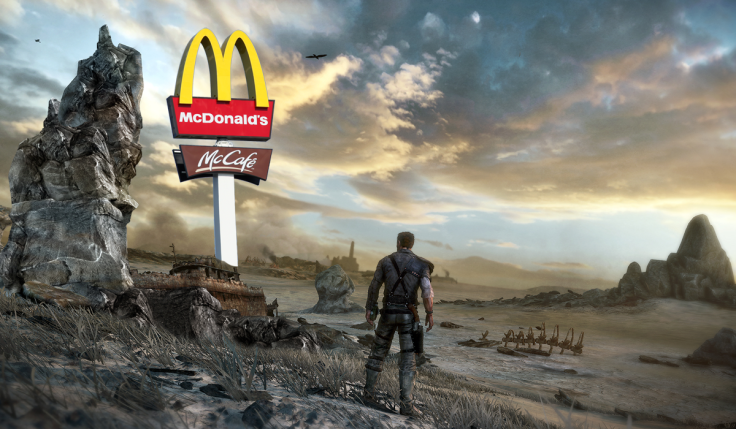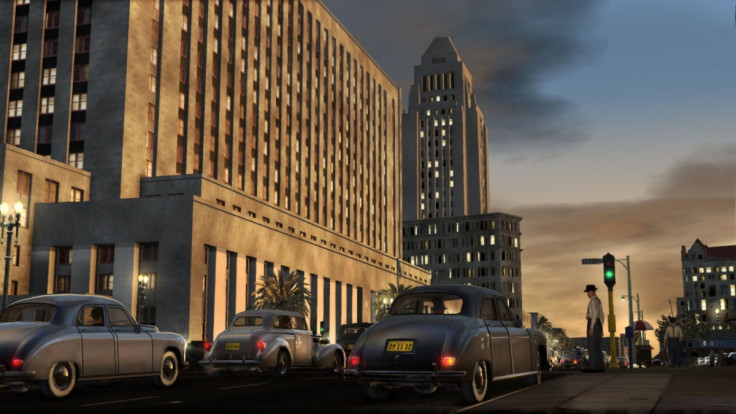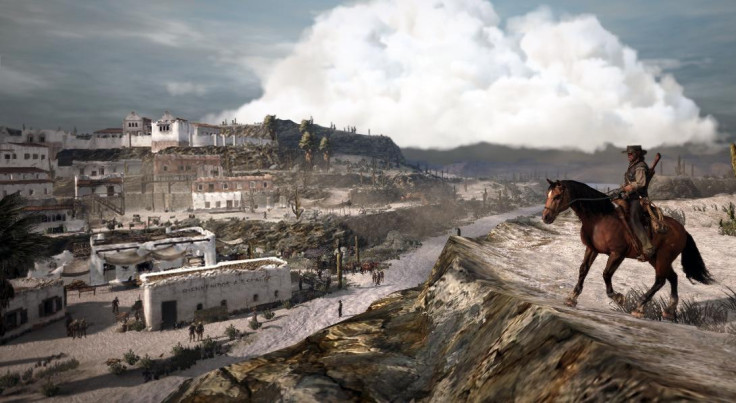Open world games like Mad Max are becoming the bloated fast food menus of this industry

I've enjoyed sandbox games in the past and don't doubt for a second the technical skills needed to create them. But in eight years, they've barely changed and the things most exciting about video games right now have nothing to do with the open world.
The implicit promise of a sandbox game is of endless and varied adventure but ultimately, you perform the same tasks, not just in one particular franchise of sandbox games but in all of them. You destroy enemy camps, you collect items, you fight bosses and you build upgrades, and it's all framed in the cold, numerical sense as progression.
What you do in sandbox games, essentially, is eat the world. You pick it clean of places and activities and people, growing fat off experience points and gameplay benefits in the process. What you're eating is fast food – it's always the same.
In Avalanche Studios' Mad Max, every single boss at every single enemy camp has the same character model, and dies in exactly the same way using exactly the same death animation. In Red Dead Redemption, you come across the same "random encounter" – an escaped convict, a gang of criminals trying to rob you – about 10 or 15 times. Climbing a lookout tower in Assassin's Creed is always pretty much the same. Finding collectibles is doing the same thing a hundred, 200 or 300 times.
I don't have a problem with this in the entitled sense. I'm not cross that games aren't giving me, the precious player, original and imaginative things to do. On the contrary, I think sandbox games are killing themselves, and the magnificent proposition of the open world, by insisting on filling themselves with garbage – it's such a shame too that video game designers, as well being the people most equipped to create places such as Skyrim or Kyrat, are also the ones most likely to cover those places with useless, video game junk.

I prefer the structure of LA Noire, where you drive from scripted encounter to scripted encounter, and the city serves merely as window dressing. It gives you a sense of time and place. Unlike game worlds that are filled corner to corner with crap for you to consume, you don't feel like the centre of this universe, as if these characters and people have lives beyond when you interact with them. This feels like an opaque, real place rather than an accessible, playable one, and it adds weight to everything you do.
Sandbox games continue to be popular due to game-makers' persistent belief in player-driven narrative, the idea that a player's actions and choices, when combined with the programmed chaos of an open-world, can create an interesting or valuable story. But I've personally never been moved or challenged, in any significant way, by the things that have happened uniquely to me in sandbox games. They've given me a few good anecdotes, some funny or slightly evocative tales to share with friends, but a player-driven design is yet to prove itself a substitute for good writing.
The promise of getting to do whatever I want - the idea of sheer play – since I'm not a child, doesn't enthuse me. Art and entertainment are magical to me because they teach and ingratiate other insights, experiences and people to me. I like to be captivated and told a story. There's a quiet dignity in listening, in simply shutting up and letting someone else tell you their thoughts and experiences, and not thinking petulantly about what's in it for you.
Actual Sunlight, Kentucky Route Zero and Kane And Lynch 2 – these are the games I find the most exciting. They have confidence in their own writing and, rather than sycophancy to their audience, seem designed around a conviction rare in video games, a conviction that what the writer wants to say is more important and more interesting than what the player wants to do.
And they're entertaining as hell. I think that's the central misconception among designers who favour player-driven narrative, the idea that more freedom, more stuff to do is more entertaining. Since when were well-written stories, told through good oratory, not entertaining? Since when was sitting quietly and reading a book, viewing a play or otherwise being told a tale not a fundamentally entertaining thing to do?
Player-driven narrative in sandbox games is an illusion. I don't get a narrative from sandbox games – I get, at best, vaguely beautiful, seemingly poetic moments, where something random happens but it's so perfectly timed or orchestrated looking that it feels planned. Then I can talk if I want about what that meant to me, and how it made me feel. I can talk about the personal importance of that moment. But that isn't a story. My response to that moment, the emotions I felt, aren't in of themselves a narrative.

What sandbox games are doing is appealing to a sense of entitlement, a sense of entitlement which tells me that, above well-written plots and characters, my raw emotions, thoughts and feelings are interesting to other people. And as games tread forward, into the realm of exploring history, politics and genuinely affecting personal experiences, player-driven, sandbox narrative, preoccupied with soliciting just raw, empty emotion without much context feels intensely retrograde.
People argue this kind of storytelling – loose, interpretative and reliant on interaction – is unique to video games and worth pursuing so as to establish the medium on its own terms. But it's not as if this is all that's unique about games. It's not as if you're either open world and open-ended or else you're just copying movies.
And it's not as if game-makers are actually that bothered about player-driven narrative. Sandbox games don't have player-driven narratives, they have narratives that occasionally pause to let the player go and muck around for a few hours, then pick up from where it left off.
There are choices sometimes, but the character is never who the player has made them – in Red Dead Redemption I can shoot nuns and crash my wagon and run around in circles for days, firing my gun, and everyone will still look at John Marston the same way.
Player-driven narrative doesn't exist, inasmuch as what is produced in player-driven narrative games is neither player driven nor narrative. The sandbox is bound to continue to exist but increasingly it feels like a time capsule, containing everything video games ought to be striving away from.
For all the latest video game news follow us on Twitter @IBTGamesUK.
© Copyright IBTimes 2025. All rights reserved.






















